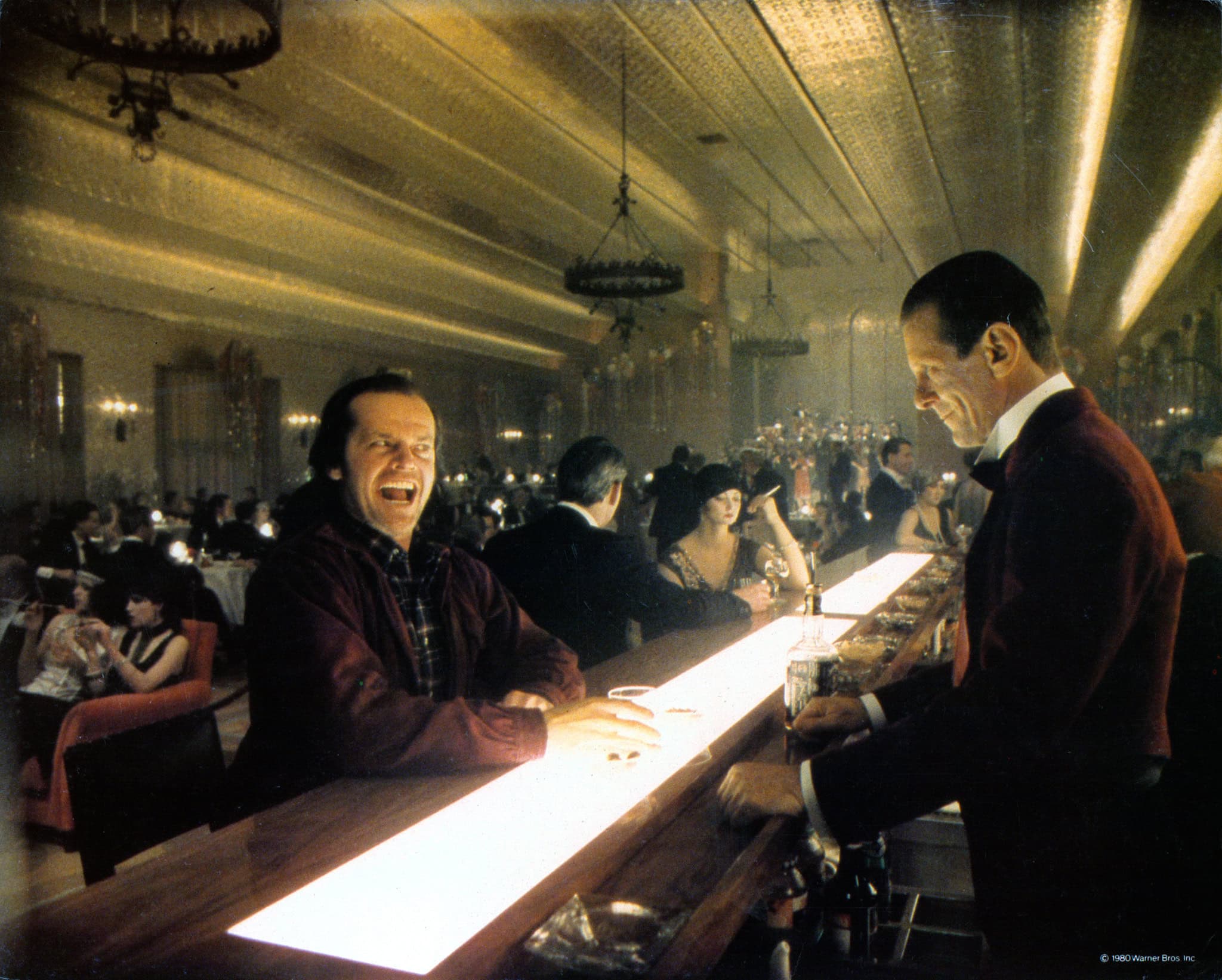This has been a long time coming….
The Shining is my favourite horror movie of all-time. Having said that, when I first saw the film, I was pretty confused, especially with the ending. And I did what anyone of my generation would do: I googled responses, reading other people’s interpretations, and trying to think of my own. And having thought about it for some time now, I’ve realised that part of what makes The Shining such a great movie is how many angles there are through which you can extract meaning from the film. This isn’t a boring slasher, after all: this is a serious piece of cinema, packed with subtleties for the viewer to pick up on and wrestle with. So, having mulled it over a bit, what do I think about it all?
Certainly, on the surface, The Shining is about a man who is deeply dissatisfied with his family life. Even in the beginning, before he got all murder-y, Jack seemed to have an odd way about him when he talked about his wife and son. This then becomes explicit to a greater extent as the film progresses: first, when Wendy interrupts Jack’s writing for the first time; and second, when Wendy suggests that they leave the hotel to take Danny to a doctor. In the latter case, Jack very loudly expresses frustration with Wendy, saying that this is “typical” and that she won’t “fuck this up” for him. Ouch. Not great.
But this is just one part of the film. Sure, we could say that this dissatisfaction eventually boils over into violence against his wife and son, but this neglects the role of the supernatural in the movie—i.e., the role of the hotel, its history, and its ghostly inhabitants. Of course, Jack sinks deeper into a murderous insanity with the encouragement of one butler, Delbert Grady, who he mistakes for Charles Grady, a man that murdered his family (and killed himself) at the hotel. This mistaken identity has certainly puzzled me. But even more puzzling is the fact that Delbert claims Jack has “always been the caretaker” before Jack eventually freezes to death and appears in a photo taken in 1921 at the hotel—decades before he and his family arrived!
These examples seem to imply that Jack—and by extension, Charles and Delbert—should not be analysed as individuals but as part of a larger system of violence within the hotel. If this were true, then it is all the more fascinating that we heard about the hotel’s origins earlier in the movie. The Overlook Hotel was built on an indigenous burial ground. Apparently, they’d even had to repel attacks when it was originally under construction. When the head chef of the Overlook, Dick Halloran, talks with Danny about the “shine” of the hotel, he’s referring to these violent events that took place when it was built.
This idea of the shine seems fascinating to me. It’s supernatural, of course, since it leads Dick to check on the Torrance’s later in the movie, but it is only explicitly mentioned at the beginning of the movie. Nevertheless, I’d argue that this “shining” drives the movie’s entire plot, right down to Jack’s violence at the end. The murderous “shine” of the Overlook’s past repeatedly rears its ugly head throughout the hotel’s history and the events of the movie. It is, in other words, a supernatural kind of systemic violence.
And that is how I (broadly) understand the movie’s message, if it has one. What kind of shines cling to our environments and how do they affect us? When confronted with a “bad shine” or systemic violence in our own communities, how do we remedy it? To quote Peter Maurin, co-founder of the Catholic Worker Movement, “Let us create a society in which it is easier for people to be good.” Of course, the violence in The Shining was socioeconomic, at least not directly. But even on a spiritual level, one might wonder what good it might have done had the builders of the Overlook decided to build their hotel somewhere else, or reconcile with the people on whose land they had intruded.
Regardless, the reckoning with the shining in our world—whatever form that takes—is up to us. And we must reckon with it, otherwise we are stuck in samsara—i.e., that endless cycle—of violence and hatred. As a final thought, then, allow me to ask: how do we shine?

Leave a Reply